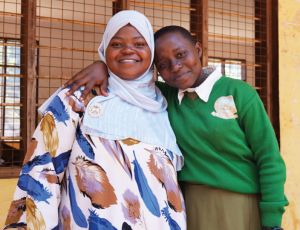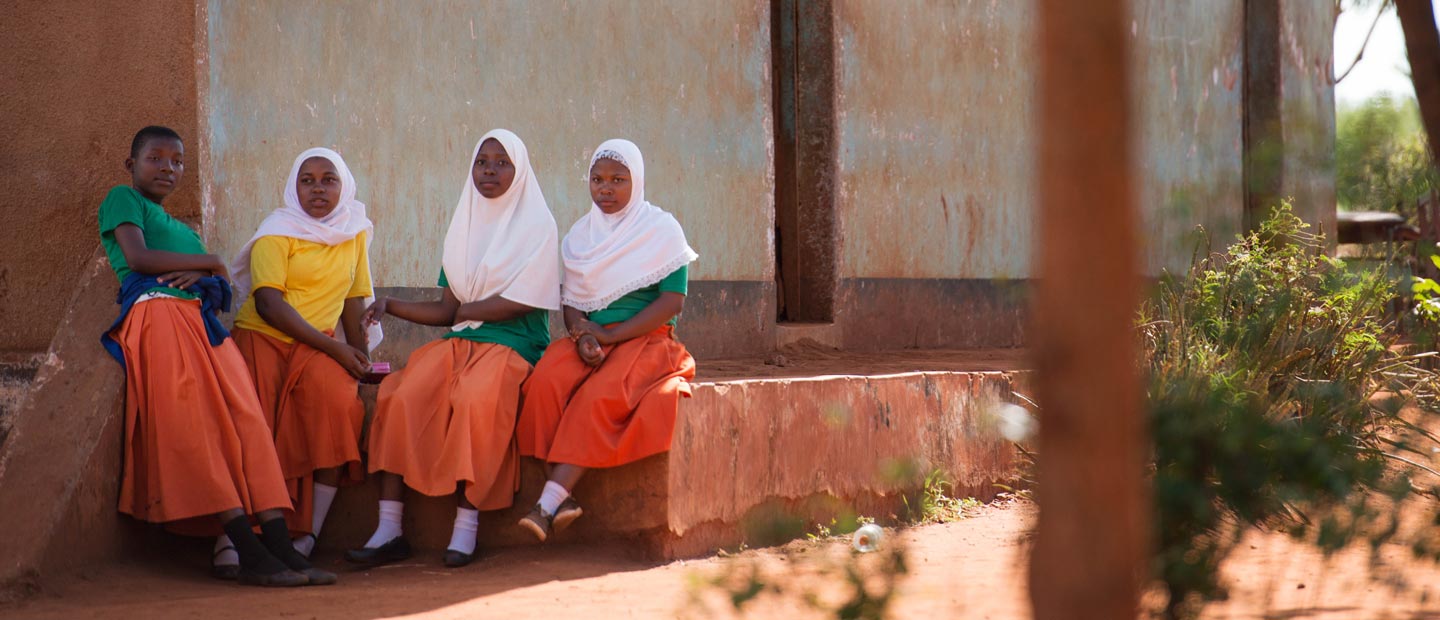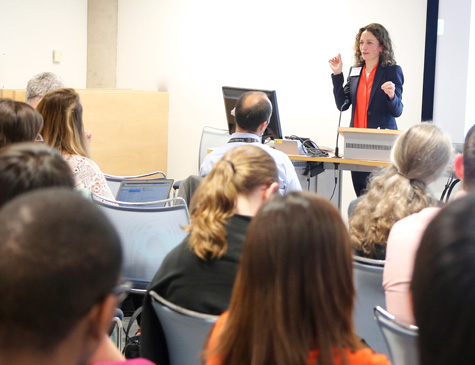
When she thrives, we all thrive
Together this giving season, we can make a difference that ripples outward to benefit everyone.


With 250 million children worldwide not learning basic literacy and numeracy skills, even though half have spent at least four years in school, the key question concerns how to address this ‘global learning crisis’. To explore these issues, the Research for Equitable Access and Learning (REAL) Centre at the University of Cambridge last week hosted a special one-day conference which brought together policy makers, researchers and educationists, to exchange research findings, ideas and solutions on the subject ‘Learning from Learning Assessments to leave no one behind’.
In her presentation ‘Assessing learning at secondary level: Lessons from CAMFED’s experience’, CAMFED CEO Lucy Lake shared insights from midline research carried out on an intervention supported by the UK Department for International Development’s (DFID) ‘Girls’ Education Challenge’ in Zimbabwe and Tanzania, targeting 171,641 marginalized girls and 407,000 young people overall in 991 secondary schools across 35 districts. The research concerns outcomes of CAMFED’s holistic support for marginalized girls at secondary school, including a contextualised life skills curriculum taught by female secondary school graduates who return to their local schools as ‘Learner Guides’ – mentors and role models to the vulnerable girls they support. The set comprises data from more than 27,000 students enrolled in 262 CAMFED partner secondary schools. It is unique in the depth and breadth of coverage for girls in secondary schools in sub-Saharan Africa and will contribute valuable research for use by policy makers and practitioners.

Panellist Lucy Lake shares insights from research on CAMFED’s contextualised life skills curriculum taught by Learner Guides and self-directed study guides for students enrolled at partner schools across Zimbabwe and Tanzania
Panellist Lucy Lake shares insights from research on CAMFED’s contextualised life skills curriculum taught by Learner Guides and self-directed study guides for students enrolled at partner schools across Zimbabwe and Tanzania
The experience of marginalized girls is an important barometer… A marginalized rural girl is the first to fail in a system that’s failing her. But, if we can push up the quality of education to the extent that she succeeds then this should signal an assurance of quality for all
Lucy Lake, CEO CAMFED
In her blog ‘The distance to school is not only about the distance you walk’, Lucy describes some of the major barriers faced by marginalized girls at secondary level that impact their retention and academic achievement. Focusing on outcomes of the ‘Learner Guide Program’, she stresses the importance of developing learning content that is relevant to girls’ lives, as well as paying attention to the context in which they are learning, in order to ensure their rights and well-being are protected. In schools where the program is operating, research findings show a major improvement in students’ academic achievements. In addition, a significant shift in attitudes towards learning has emerged, particularly among the most marginalized girls, as students’ confidence in their own abilities, persistence and retention rates increase.
Since its launch in June 2015, the partnership between CAMFED and the REAL Centre recently entered a new phase in order to extend the scope and detail of the research. The analysis of this rich and important dataset will yield further valuable insights for educationists, policy makers and practitioners across the sector into how best to deliver inclusive and quality education for all children, regardless of their background.
Anthony Cole $10.9
Heather Sheeran £57.4
Margaret Cupp $2102
Crystal Martin $47.6
Crystal Martin $117
Derwood Mamouzelos $10.9
Olivia Buell $10
Sherry Thompsen $50
Joan and Scott Barker $526
dilhara anbil $7000
Kristin Nylen $158
Michael Glanz $150
Joyce Feeney $150
Vanessa Dauterive $26.6
Aran MacKinnon $106